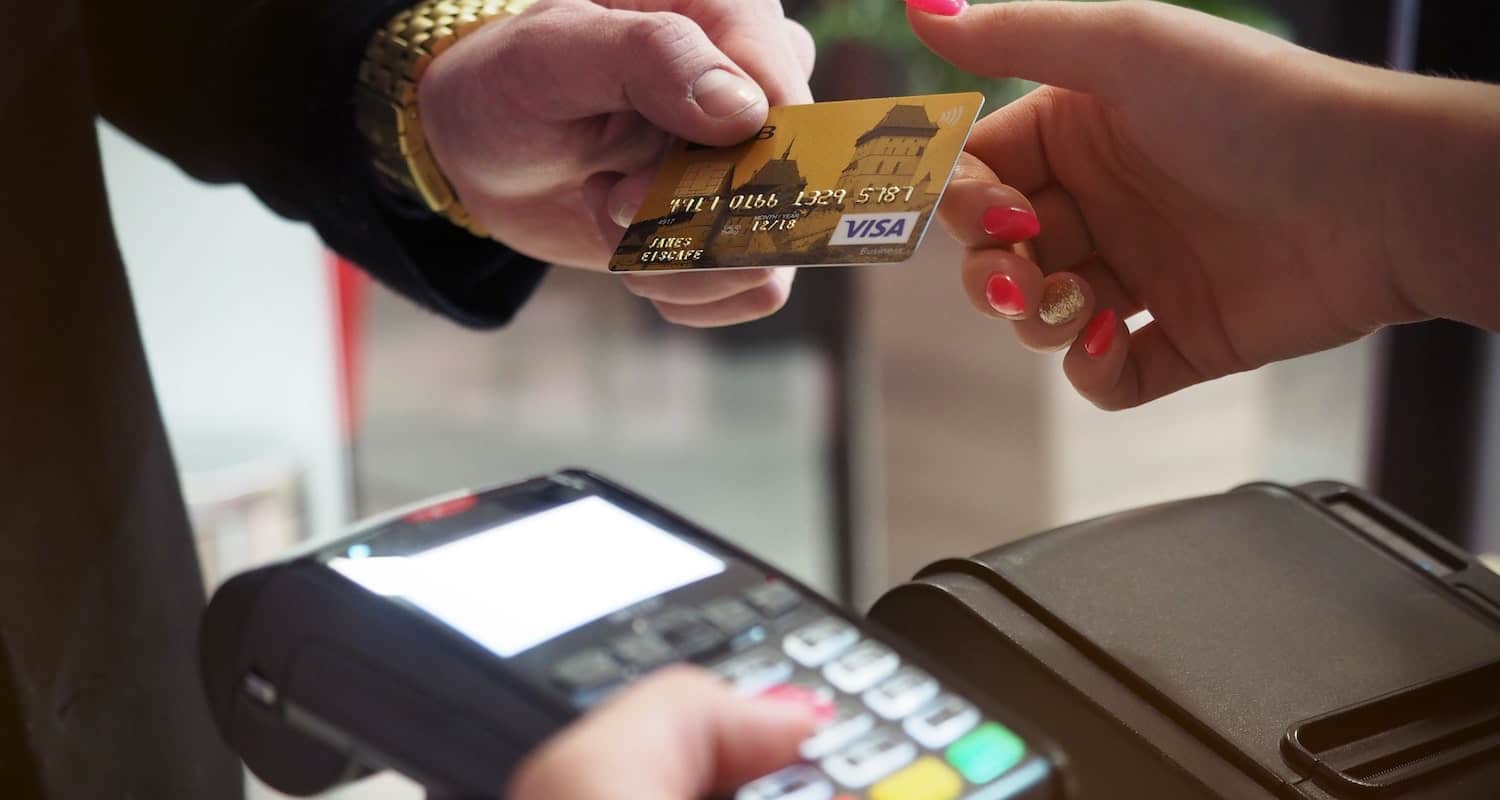How Much Do Hotels Hold on Credit Cards? A Comprehensive Guide
Traveling often involves booking accommodations, and most hotels require a credit card to secure your reservation. However, many travelers are unaware of the common practice of hotels placing a hold on a portion of the available credit on your card.
This temporary hold, also known as a credit card authorization, can catch some guests off guard and lead to confusion or frustration.
If you’re short on time, here’s a quick answer to your question: Hotels typically hold an amount ranging from the cost of your room for one night to the total cost of your entire stay, plus an additional incidental deposit that can range from $50 to $500 or more, depending on the hotel’s policies.
In this comprehensive guide, we’ll dive deep into the details of how much hotels hold on credit cards, the reasons behind this practice, and what you can expect during your stay. We’ll also explore the factors that influence the hold amount, how long the hold typically lasts, and what you can do to minimize any potential inconveniences.
Understanding Credit Card Holds
What is a Credit Card Hold?
When you check into a hotel, the front desk staff will typically place a hold on your credit card for an estimated amount that covers the room rate, taxes, and potential incidental charges. This hold, also known as a credit card authorization, is not an actual charge but rather a temporary hold or “freeze” on a portion of your available credit limit.
It serves as a security measure for the hotel to ensure they have access to funds to cover your stay and any additional expenses you may incur during your visit.
Why Do Hotels Place Holds on Credit Cards?
Hotels implement credit card holds for several reasons, primarily to safeguard against unpaid bills and potential damages. By holding a certain amount on your credit card, the hotel protects itself in case you fail to settle your outstanding balance or if any damages occur during your stay.
This practice helps mitigate the risk of non-payment and ensures the hotel can recoup the necessary funds if needed. Additionally, it provides a sense of security for both parties, as the hotel can verify that you have the means to cover your expenses, and you have a guarantee that your charges will not exceed the predetermined hold amount.
Factors Influencing the Hold Amount
The amount that a hotel places on hold can vary based on several factors, including:
- Length of stay: The longer your reservation, the higher the hold amount is likely to be.
- Room rate: More expensive rooms typically result in higher hold amounts.
- Hotel policy: Each hotel has its own guidelines and policies regarding credit card holds, which can influence the hold amount.
- Incidental charges: Hotels may factor in potential incidental charges, such as room service, minibar usage, or spa services, when determining the hold amount.
According to a Forbes Advisor report, the average hotel hold amount ranges from $50 to $200 per night, but it can be higher for luxury properties or extended stays. It’s essential to inquire about the hotel’s specific hold policies to avoid any surprises on your credit card statement.
While credit card holds may seem inconvenient, they are a standard practice in the hospitality industry, designed to protect both the hotel and the guest. By understanding how they work and what factors influence the hold amount, you can better prepare for your upcoming hotel stay and ensure a smooth and hassle-free experience.
Remember, the hold is temporary and will be released once you have settled your bill and checked out of the hotel. 😊
Typical Hold Amounts for Hotels
When you book a hotel stay, it’s common for the hotel to place a hold on your credit card to ensure they have sufficient funds to cover the cost of your stay and any additional charges. The amount held on your card can vary depending on the hotel’s policies and the type of reservation you make.
Here are some typical hold amounts you might encounter:
Standard Room Rate Hold
Many hotels will place a hold on your credit card for the cost of the room rate for the entire duration of your stay. This amount is typically calculated by multiplying the nightly rate by the number of nights you’ve reserved.
For example, if you’re staying for three nights at a hotel with a nightly rate of $150, the hotel may hold $450 (3 nights x $150) on your credit card.
Total Stay Cost Hold
Some hotels go a step further and hold the entire estimated cost of your stay, including taxes and fees. This ensures that they have sufficient funds to cover any additional charges you might incur during your stay, such as room service, parking, or minibar purchases.
According to a survey by CreditCards.com, around 40% of hotels hold the total estimated cost of the stay.
Incidental Deposit Hold
In addition to the room rate or total stay cost hold, many hotels also place an incidental deposit hold on your credit card. This amount, often ranging from $50 to $200 or more, serves as a security deposit to cover any incidental charges you might incur during your stay, such as damages, smoking fees, or unreturned items.
😊 The incidental deposit hold is typically released a few days after you check out, provided there are no additional charges.
It’s worth noting that hold amounts can vary significantly between hotels, and some may have higher or lower hold amounts based on their policies and the type of room or package you’ve booked. Additionally, some hotels may require a deposit or pre-payment upfront, rather than placing a hold on your credit card.
To avoid any surprises or unnecessary holds on your credit card, it’s always a good idea to inquire about the hotel’s hold policies before making a reservation. This way, you can ensure you have sufficient funds available and plan accordingly. 👍
Hotel Policies and Variations
When it comes to how much hotels hold on credit cards, there can be significant variations depending on the type of hotel you’re booking. The policies and practices can differ among chain hotels, independent hotels, luxury hotels, and budget hotels, as well as across different countries and regions.
Understanding these nuances is crucial to avoid any unpleasant surprises during your stay.
Chain Hotels vs. Independent Hotels
Chain hotels, such as Marriott, Hilton, or Hyatt, typically have standardized policies in place regarding credit card holds. These policies are often consistent across their various properties and locations.
Many chain hotels hold a predetermined amount per night, usually ranging from $50 to $200, to cover potential incidental charges like room service or minibar expenses. This amount is held on your credit card in addition to the room rate.
Independent hotels, on the other hand, may have more flexible or varied policies when it comes to credit card holds. Some may hold a flat rate, while others may base the hold amount on the room rate or the estimated duration of your stay.
Luxury Hotels vs. Budget Hotels
Luxury hotels tend to have higher credit card hold amounts compared to budget hotels. This is because luxury properties often expect their guests to incur higher incidental charges for services like spa treatments, fine dining, or other premium amenities.
According to a study by CreditCards.com, luxury hotels can hold anywhere from $500 to $1,000 or more on your credit card. Budget hotels, on the other hand, typically have lower hold amounts, ranging from $50 to $200, reflecting their more modest offerings and lower anticipated incidental expenses.
International Hotel Policies
Hotel policies regarding credit card holds can also vary significantly across different countries and regions. In the United States, for example, it’s common for hotels to place a hold on your credit card for the entire duration of your stay, plus an additional amount for incidentals.
However, in some European countries, hotels may only hold a small deposit or no hold at all, opting to charge incidentals directly to your room. It’s always a good idea to inquire about the specific policies of the hotel you’re booking, especially when traveling internationally.
Here’s a comparison table illustrating typical credit card hold amounts for different types of hotels:
| Hotel Type | Typical Credit Card Hold Amount |
|---|---|
| Chain Hotels | $50 – $200 per night |
| Independent Hotels | Varies, often based on room rate or stay duration |
| Luxury Hotels | $500 – $1,000 or more |
| Budget Hotels | $50 – $200 |
It’s essential to be aware of these variations and to check the specific policies of your chosen hotel before your stay. Don’t hesitate to ask the hotel staff for clarification or additional details if you have any concerns or questions.
By understanding how much hotels hold on credit cards, you can better prepare and avoid any potential financial surprises during your travels. 😎
Duration of Credit Card Holds
When you check into a hotel, they often place a hold on your credit card to cover the cost of your stay and any incidental charges you may incur. But how long does this hold typically last? The duration of a credit card hold can vary widely, and there are several factors that come into play.
Let’s dive into the details!
When Does the Hold Get Released?
Generally speaking, hotels release the hold on your credit card within 24-72 hours after you check out. However, this timeframe can be shorter or longer depending on the hotel’s policies and your specific circumstances.
According to Investopedia, some hotels may release the hold as soon as you check out, while others may take up to a week or longer.
It’s worth noting that the hold doesn’t necessarily mean the funds have been charged to your account. The hold is simply a temporary “freeze” on a portion of your available credit, ensuring that you have enough funds to cover the anticipated charges.
Once the hold is released, the funds become available again on your credit card.
Factors Affecting Hold Release Timing
Several factors can influence how long a hotel holds your credit card funds. Here are some key considerations:
- Hotel Chain or Brand: Larger hotel chains and brands may have more standardized policies regarding credit card holds, while smaller independent hotels may have more flexibility.
- Payment Method: If you pay with a debit card, the hold may be released faster than if you use a credit card, as debit transactions are typically processed more quickly.
- Incidental Charges: If you incurred additional charges during your stay (e.g., room service, minibar, spa services), the hotel may hold the funds longer to ensure they can collect payment.
- Billing Disputes: In the event of a billing dispute or suspected fraud, hotels may hold the funds for an extended period while the issue is resolved.
While the duration of a credit card hold can be frustrating, it’s important to remember that hotels have legitimate reasons for implementing this practice. According to a CreditCards.com study, approximately 63% of hotels hold funds for 3-7 days after checkout.
😮 So, if you’re planning a trip, it’s wise to factor in the potential hold when budgeting your available credit.
Ultimately, the best way to avoid any surprises is to communicate with the hotel staff upfront. Don’t be afraid to ask about their credit card hold policies and expected release timelines. After all, a little preparation can go a long way in ensuring a stress-free and enjoyable hotel stay! 👏
Tips for Minimizing Credit Card Hold Impacts
When booking a hotel stay, credit card holds can often catch travelers off guard. These temporary holds, designed to cover potential incidental charges, can tie up a significant portion of your available credit limit.
Don’t worry, though – there are several strategies you can employ to minimize the impact of these holds on your finances and credit utilization.
Using a Credit Card with a Higher Limit
One effective way to reduce the impact of credit card holds is to use a card with a higher credit limit. The hold amount is typically based on the estimated cost of your stay, so a higher limit means the hold will account for a smaller percentage of your overall credit.
According to NerdWallet, some hotels may hold as much as the full estimated cost of your stay, plus an additional 20-30% for incidentals. By using a card with a higher limit, you can ensure that the hold doesn’t significantly impact your credit utilization ratio, which is a key factor in determining your credit score.
Requesting a Lower Hold Amount
While hotels have standard hold policies in place, many are willing to work with guests to reduce the hold amount if requested. Don’t be afraid to politely ask the front desk staff if they can lower the hold amount or remove it entirely if you’re paying cash for incidentals.
According to Expedia, some hotels may be willing to reduce the hold to a set amount, such as $50 or $100, especially if you have a history of staying with them or are a loyalty program member.
Paying with Multiple Payment Methods
Another strategy to minimize the impact of credit card holds is to pay for your stay using multiple payment methods. For example, you could use a credit card to cover the room charges and then pay for incidentals with cash or a debit card.
This approach can help reduce the overall hold amount on your credit card, freeing up more of your available credit limit. According to a survey by CreditCards.com, 😊 over 60% of Americans have experienced a credit card hold that exceeded their expectations, so using multiple payment methods can provide peace of mind.
Remember, while credit card holds can be inconvenient, they are a standard practice in the hospitality industry. By employing these tips and communicating openly with hotel staff, you can minimize the impact of these holds on your finances and credit utilization. Happy travels! 👏
Conclusion
Understanding how much hotels hold on credit cards is crucial for travelers to avoid any unexpected financial surprises or inconveniences during their stay. While the practice of placing holds is standard in the hospitality industry, the specific amounts and policies can vary widely among different hotels and locations.
By being informed about the factors that influence hold amounts, the typical ranges, and the duration of these holds, you can better prepare and manage your finances accordingly. Additionally, implementing strategies such as using a credit card with a higher limit, requesting a lower hold amount, or utilizing multiple payment methods can help minimize the impact of credit card holds on your available credit.
Ultimately, being aware of this common practice and taking proactive steps can ensure a smoother and more enjoyable travel experience, allowing you to focus on creating lasting memories without worrying about unexpected financial hurdles.






